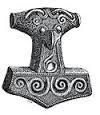

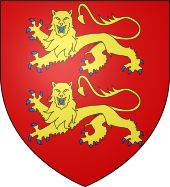
Travels of the Baroness Longford, Dame of Blondel, and Lady of Ennerdale.
Ancient Wessex, Guernsey, Ennerdale Cumbria, and Longford County Ireland are all unique regions with their own distinct histories, cultures, and landscapes. Here are some comparisons and contrasts between these regions: History: Ancient Wessex was a powerful Anglo-Saxon kingdom that existed from the 6th century until the Norman Conquest in the 11th century. Guernsey is an island in the English Channel that has a long history of settlement dating back to Neolithic times. Ennerdale Cumbria is an area in the northwest of England that was settled by Norse Vikings in the 9th and 10th centuries. Longford County Ireland is a region in the midlands of Ireland that was settled by Gaelic tribes in the pre-Christian era. Geography: Ancient Wessex was located in the southern part of England and consisted of several counties, including Hampshire, Wiltshire, and Dorset. Guernsey is a small island in the English Channel, located off the coast of Normandy, France. Ennerdale Cumbria is an area in the Lake District National Park in northwest England, known for its rugged mountains and scenic lakes. Longford County Ireland is located in the midlands of Ireland and is characterized by rolling hills, bogs, and rivers. Culture: Ancient Wessex was known for its Anglo-Saxon culture, which included a strong tradition of storytelling, poetry, and music. Guernsey has a unique culture that blends French and English influences, as well as a strong maritime heritage. Ennerdale Cumbria has a rich cultural heritage, with many traditional festivals and celebrations still observed today. Longford County Ireland has a strong Gaelic culture, with Irish language and traditional music still thriving in many parts of the region. Economy: Ancient Wessex was an agricultural region that was known for its production of wool, grains, and livestock. Guernsey has a diverse economy that includes tourism, finance, and agriculture. Ennerdale Cumbria has a strong tradition of farming, forestry, and outdoor recreation, including hiking and fishing. Longford County Ireland is largely an agricultural region, with dairy farming, beef production, and sheep farming being the main industries. Overall, these regions have their own unique histories, cultures, and landscapes, and each has contributed to the rich tapestry of European history and culture in their own way. Description of the Lords of The European Fief of Blondel and Eperons - Est. 1179 Commissioner George Mentz is the Seigneur of the Fief Blondel & Eperons of Normandy which is an 800 year old territory on the Norman Islands. From the great Viking Rollo to the present day of the rule of King Charles, these islands have allowed feudal law and courts on the fiefs and island shores. The Fief Blondel and Eperons and its Seigneur are registered directly with the Royal Courts of the Crown and The Duke of Normandy and King Charles. Much like the Seigneurs of Monaco, the lords of French Andorra, Sovereign Gozo of Malta, the Sovereign Military Order of Malta (SMOM), The Papal Monarch of the Vatican City, and The Lord of Sark, The ancient Fiefs in the Channel islands are recognized by both nobility law and international law. Commissioner Dr. George Mentz was elevated as the 26th Free Lord & Seigneur of Fief of Blondel et L'Epersons) on the island of (Dgèrnésiais - Guernsey French) in Dec. 2017. Mentz also registered the fief direct with the courts using the feudal legal system of Conge and Tresieme which is the official way to transfer a fief from one noble leader or peer to another owner. The Fief of Thom. Blondel is One of the Last Great Private Fiefs in Europe to be privately owned where the lord owns the Beaches, Water, Foreshores and Seasteds including international Waters. In other local cultures, the free-lord Seigneur is known as a Frhr. Friherre in Sweden, a Frhr. Vrijheer in Dutch, and a Frhr. Friherre in Denmark. The Lords of Fief Blondel et Eperons appear to be older than the Seigneurs of Monaco as the Grimaldi family settled in Monaco in 1297 and Fief Blondel is also older than ancient Sheikhdom of Kuwait, Kingdom of Moscovy Russia 1362, Kingdom of Spain 1479, Kingdom of Bohemia, Kingdom of Belgium. Fief Blondel may also be older than the Ottoman Empire, Habsburg Empire, and the Kingdom of Lithuania. French: Le commissaire George Mentz est le seigneur du fief Blondel & Eperons de Normandie, un territoire vieux de 800 ans situé sur les îles normandes. Du grand Viking Rollo jusqu'à l'époque actuelle du règne du roi Charles, ces îles ont permis l'application du droit féodal et des tribunaux sur les fiefs et les côtes des îles. Le fief Blondel et Eperons ainsi que son seigneur sont enregistrés directement auprès des Cours Royales de la Couronne, du Duc de Normandie et du Roi Charles. Tout comme les seigneurs de Monaco, les seigneurs de la France, Andorre, le Souverain Gozo de Malte, l'Ordre Souverain Militaire de Malte (SMOM), le Monarque Papal de la Cité du Vatican et le Seigneur de Sark, les anciens fiefs des îles de la Manche sont reconnus à la fois par le droit de la noblesse et par le droit international. Le commissaire George Mentz a été élevé au rang de 26ème Seigneur Libre et Seigneur du fief de Blondel et L'Epersons) sur l'île de (Dgèrnésiais - français de Guernesey) en décembre 2017. Mentz a également enregistré le fief directement auprès des tribunaux en utilisant le système juridique féodal de Conge et Tresieme, qui est la manière officielle de transférer un fief d'un noble leader ou pair à un autre propriétaire. Le fief de Thom. Blondel est l'un des derniers grands fiefs privés en Europe à être la propriété privée où le seigneur possède les plages, l'eau, les rivages et les estrades maritimes, y compris les eaux internationales. Dans d'autres cultures locales, le seigneur libre Seigneur est connu sous le nom de Frhr. Friherre en Suède, un Frhr. Vrijheer en néerlandais, et un Frhr. Friherre au Danemark. Les seigneurs du fief Blondel et Eperons semblent être plus anciens que les seigneurs de Monaco car la famille Grimaldi s'est installée à Monaco en 1297 et le fief Blondel est également plus ancien que l'ancien émirat du Koweït, le royaume de Moscovy Russie 1362, le royaume d'Espagne 1479, le royaume de Bohème, le royaume de Belgique. Le fief Blondel pourrait également être plus ancien que l'Empire ottoman, l'Empire des Habsbourg et le royaume de Lituanie. German: Kommissar George Mentz ist der Seigneur des Fiefs Blondel & Eperons der Normandie, das ein 800 Jahre altes Territorium auf den Normanneninseln ist. Von dem großen Wikinger Rollo bis zur heutigen Zeit unter der Herrschaft von König Charles haben diese Inseln feudales Recht und Gerichte auf den Lehen und Inselküsten ermöglicht. Das Fief Blondel und Eperons sowie sein Seigneur sind direkt bei den Königlichen Gerichten der Krone, dem Herzog der Normandie und König Charles registriert. Ganz ähnlich wie die Seigneurs von Monaco, die Herren von Frankreich, Andorra, dem Souveränen Gozo von Malta, dem Souveränen Militärorden von Malta (SMOM), dem päpstlichen Monarchen des Vatikanstaats und dem Herrn von Sark werden die alten Lehen auf den Kanalinseln sowohl vom Adelsrecht als auch vom Völkerrecht anerkannt. Kommissar Dr. George Mentz wurde im Dezember 2017 zum 26. Freien Herrn & Seigneur des Fiefs von Blondel et L'Epersons) auf der Insel (Dgèrnésiais - Guernsey French) erhoben. Mentz registrierte das Lehen auch direkt bei den Gerichten unter Verwendung des feudalen Rechtssystems von Conge und Tresieme, das die offizielle Art und Weise ist, ein Lehen von einem adligen Führer oder Peer auf einen anderen Eigentümer zu übertragen. Das Fief von Thom. Blondel ist eines der letzten großen privaten Lehens in Europa, das privat besessen ist, wo der Herr die Strände, das Wasser, die Küsten und die Meeresstädte einschließlich der internationalen Gewässer besitzt. In anderen lokalen Kulturen ist der freie Herr Seigneur als Frhr. Friherre in Schweden, ein Frhr. Vrijheer im Niederländischen und ein Frhr. Friherre in Dänemark bekannt. Die Herren des Fiefs Blondel et Eperons scheinen älter zu sein als die Seigneurs von Monaco, da sich die Familie Grimaldi 1297 in Monaco niederließ und das Fief Blondel auch älter ist als das alte Scheichtum Kuwait, das Königreich Moscovy Russland 1362, das Königreich Spanien 1479, das Königreich Böhmen, das Königreich Belgien. Das Fief Blondel könnte auch älter sein als das Osmanische Reich, das Habsburgerreich und das Königreich Litauen. Italian: Il commissario George Mentz è il signore del Feudo Blondel & Eperons della Normandia, un territorio di 800 anni situato nelle isole normanne. Dal grande vichingo Rollo ai giorni nostri sotto il regno di Re Carlo, queste isole hanno permesso l'applicazione della legge feudale e dei tribunali sui feudi e sulle coste delle isole. Il Feudo Blondel ed Eperons e il suo signore sono registrati direttamente presso i Tribunali Reali della Corona, il Duca di Normandia e Re Carlo. Molto simili ai signori di Monaco, i signori della Francia, Andorra, il Sovrano Gozo di Malta, il Sovrano Militare Ordine di Malta (SMOM), il Monarca Papale della Città del Vaticano e il Signore di Sark, gli antichi Feudi delle isole del Canale sono riconosciuti sia dalla legge nobiliare che dal diritto internazionale. Il commissario Dr. George Mentz è stato elevato al rango di 26° Signore Libero & Signore del Feudo di Blondel et L'Epersons) nell'isola di (Dgèrnésiais - Guernsey French) nel dicembre 2017. Mentz ha anche registrato il feudo direttamente presso i tribunali utilizzando il sistema giuridico feudale di Conge e Tresieme, che è il modo ufficiale per trasferire un feudo da un nobile leader o pari a un altro proprietario. Il Feudo di Thom. Blondel è uno degli ultimi grandi feudi privati in Europa a essere di proprietà privata, dove il signore possiede le spiagge, l'acqua, le rive e le città marittime, comprese le acque internazionali. In altre culture locali, il Signore libero Seigneur è conosciuto come Frhr. Friherre in Svezia, un Frhr. Vrijheer in olandese e un Frhr. Friherre in Danimarca. I Signori del Feudo Blondel et Eperons sembrano essere più antichi dei Signori di Monaco, poiché la famiglia Grimaldi si stabilì a Monaco nel 1297 e il Feudo Blondel è anche più antico dell'antico sceicco del Kuwait, del Regno di Moscovia Russia 1362, del Regno di Spagna 1479, del Regno di Boemia, del Regno del Belgio. Il Feudo Blondel potrebbe anche essere più antico dell'Impero Ottomano, dell'Impero degli Asburgo e del Regno di Lituania. Spanish: El comisionado George Mentz es el Señor del Feudo Blondel & Eperons de Normandía, un territorio de 800 años en las Islas Normandas. Desde el gran vikingo Rollo hasta la actualidad bajo el reinado del Rey Carlos, estas islas han permitido la aplicación de la ley feudal y los tribunales en los feudos y las costas de las islas. El Feudo Blondel y Eperons y su Señor están registrados directamente en los Tribunales Reales de la Corona, el Duque de Normandía y el Rey Carlos. Al igual que los Señores de Mónaco, los señores de Francia, Andorra, el Soberano Gozo de Malta, la Orden Militar Soberana de Malta (SMOM), el Monarca Papal de la Ciudad del Vaticano y el Señor de Sark, los antiguos Feudos de las Islas del Canal son reconocidos tanto por la ley nobiliaria como por el derecho internacional. El comisionado Dr. George Mentz fue elevado al rango de 26º Señor Libre y Señor del Feudo de Blondel et L'Epersons) en la isla de (Dgèrnésiais - Guernsey French) en diciembre de 2017. Mentz también registró el feudo directamente en los tribunales utilizando el sistema legal feudal de Conge y Tresieme, que es la forma oficial de transferir un feudo de un líder noble o par a otro propietario. El Feudo de Thom. Blondel es uno de los últimos grandes feudos privados en Europa en ser de propiedad privada, donde el señor posee las playas, el agua, las costas y las ciudades marítimas, incluidas las aguas internacionales. En otras culturas locales, el Señor libre Señor se conoce como Frhr. Friherre en Suecia, un Frhr. Vrijheer en holandés y un Frhr. Friherre en Dinamarca. Los Señores del Feudo Blondel et Eperons parecen ser más antiguos que los Señores de Mónaco, ya que la familia Grimaldi se estableció en Mónaco en 1297 y el Feudo Blondel también es más antiguo que el antiguo jeque del Kuwait, el Reino de Moscovia Rusia 1362, el Reino de España 1479, el Reino de Bohemia, el Reino de Bélgica. El Feudo Blondel también podría ser más antiguo que el Imperio Otomano, el Imperio de los Habsburgo y el Reino de Lituania.
|
Seigneur de la Fief of Blondel Lord Baron Mentz of Fief Blondel Geurnsey Crown Dependency Seigneur Fief of Blondel George Mentz Lord Baron of Fiefdom Blondel Freiherr of Fief Thomas Blondel Feudal Lord of Baronnie - Noble Fief Barony Friherre > Seigneurs and Dames Travel Research Seigneurs and Dames Travel Research Lord Paramount Feudal Barons The Seigneur Order Patron George Mentz Charter of Liberties Deed & Title Fief Blondel Islands Viking Kingdom Fief Worship Fiefs of the Islands ECS Extended Continental Shelf Styles and Dignities Territorial Waters Blondel Privy Seal Fief Bouvees of Fief Thomas Blondel Guernsey Court of Chief Pleas Fief Court Arms Motto Flower Fief de l'Eperon La Genouinne Kingdom of West Francia Fief DuQuemin Bouvée Phlipot Pain Bouvée Torquetil Bouvée Bourgeon Bailiwick of Ennerdale Channel Island History Fief Direct from the Crown A Funny Think Happened On the Way to the Fief Guernsey Bailiwick of Guernsey - Crown Dependency Confederation des Iles Anglo-Normandes Sovereignty Papal Bull Research Links Norse Normandy Order of the Genet Order of the Genet Order of the Star Est. 1022 Knights of theThistle of Bourbon Count of Anjou Fief Rights Blondel and King Richard Press Carnival Manorial Incidents Appointments of Seigneurs Store Portelet Beach Roquaine Bay Neustrasia Columbier Dovecote Fief Blondel Merchandise Fief Blondel Beaches Islands Foreshore Events Fiefs For Sale Sold Lords of Normandy Fief Coin Viscounts de Contentin Fief Blondel Map Feudal Guernsey Titles Board of Trustees The Feudal System Hereditaments Chancellor Flag & Arms Fief Videos Guernsey Castle Sark Contact Advowson Site Map Disclaimer Freiherr Livres de perchage Lord Baron Longford Income Tax Guernsey Valliscaulian Order Saint Benedict of the Celestines Society of Divine Compassion Dictionary Count of Mortain Seigneur de Saint-Sauveur Seigneur of Fief Ansquetil Top Success Books Datuk Seri George Mentz Order St. Benedict OSB Celestines Order of the Iron Crown Order of the White Falcon Colonel Mentz Order Red Eagle Order St. Louis Order Holy Ghost Order of Saint Anthony Order of the Black Swan Order of St Columban Order of the Iron Helmet Livonian Brothers of the Sword Fief treizième and Direct from Crown Valuation Fief Blondel Prince of Annaly Teffia
Feudal Lord of the Fief Blondel of the Nordic Channel Islands Guernsey Est.
1179
Feudalherr - Fief Blondel von der Nordischen Insel Guernsey Est. 1179
New York Gazette - Magazine of Wall Street -
George Mentz -
George Mentz - Aspen Commission - Mentz Arms
Counselor George Mentz Esq. - Seigneur Feif BlondelBaron Annaly Baron Moyashel Grants to Delvin About Longford Styles and Dignities The Seigneur Court Barons Fiefs of the Islands Longford Map The Island Lords Market & Fair Fief Worship Channel Island History Fief Blondel Lord Baron Longford Fief Rights Fief Blondel Merchandise Events Blondel and King Richard Fief Coin Feudal Guernsey Titles The Feudal System Flag & Arms Castle Site Map Disclaimer Blondel Myth DictionaryMentz Scholarship Program 101 Million Donation - Order of the Genet Knighthood |
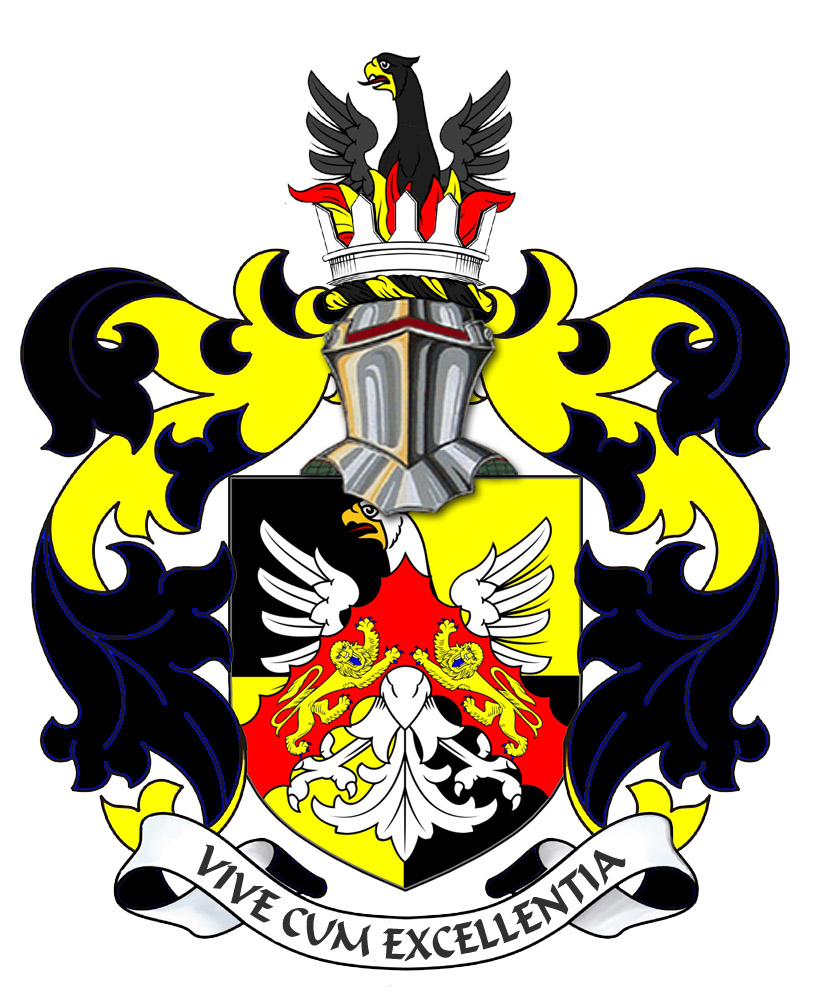
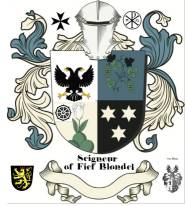
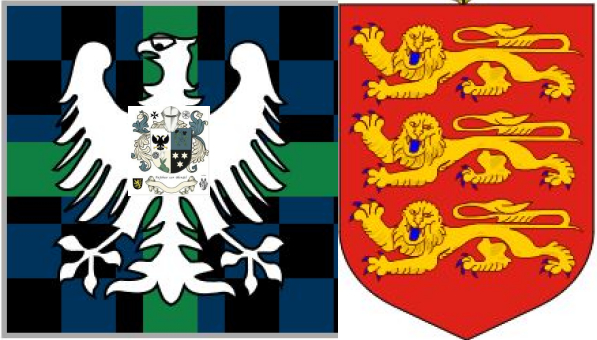
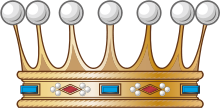
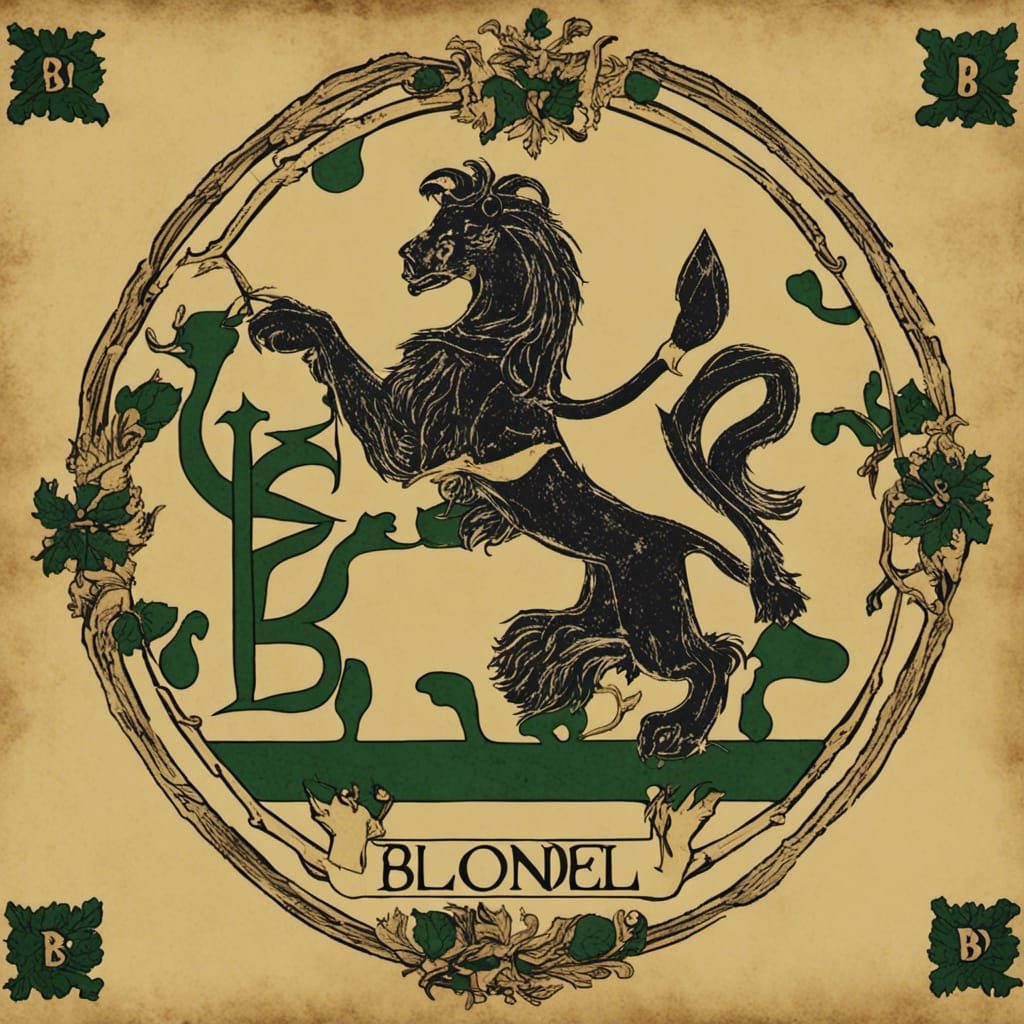
George Mentz Education -
Commissioner George Mentz
-
https://finance.yahoo.com/news/commissioner-george-mentz-clinches-influencer-180000705.html
-
George Mentz News -
George Mentz Net Worth - George Mentz Noble Tilte -
George Mentz -
George Mentz Trump Commissioner -
George Mentz Freiherren Count Baron -
George Mentz Global Economic Forum -
George Mentz Donates Millions